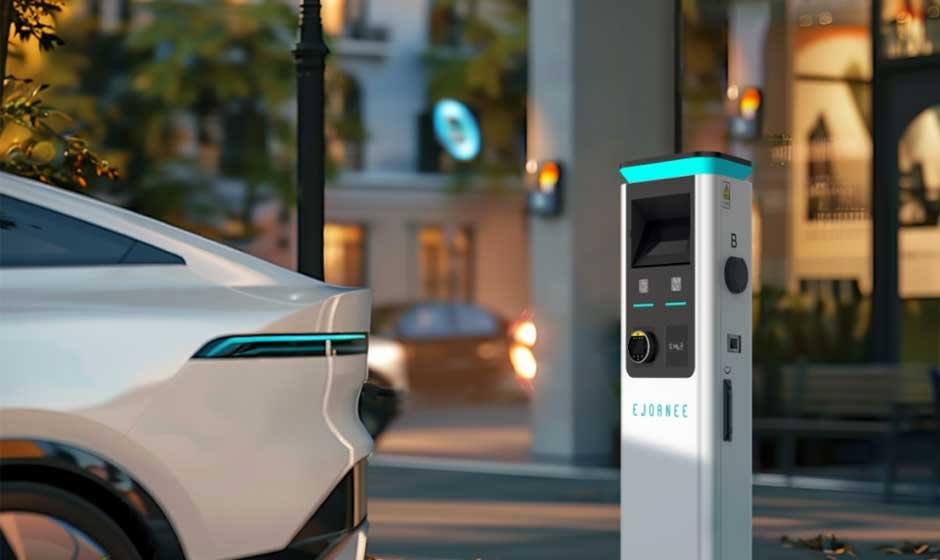Introduction to Electric Vehicles
Electric vehicles (EVs) are redefining the parameters of modern transportation, stepping away from the long-standing reliance on fossil fuels. With sustainability becoming more paramount, EVs offer an environmentally friendly alternative with zero-emission potential. This transformation is being facilitated by a network of suppliers, including many Jeep dealers in Florida, who play an essential role in promoting the accessibility and appeal of electric vehicles.
The inception of electric vehicles is not a novel concept. Their history goes back to the early 1800s, with significant developments occurring throughout the 20th century. Yet, the technological and environmental consciousness surge in recent decades gave the pivotal push toward market viability. This paradigm shift is underscored by concerted efforts from technology innovators, governmental bodies, and the traditional automotive industry, each contributing to the budding green revolution.
Current Market Trends
The electric vehicle market is experiencing impressive growth, with rising adoption rates in Europe, Asia, and North America. Major automakers and new cars for sale Tampa are transforming vehicular electrification. Reports highlight how different markets, shaped by unique regulations and consumer preferences, drive this change. Key factors for EV growth include a diverse range of models, reduced production costs, and supportive government policies, making electric vehicles a mainstream choice for eco-conscious consumers.
Environmental Benefits
Electric vehicles present a cleaner, more sustainable alternative to their internal combustion engine counterparts. EVs dramatically reduce greenhouse gas levels in urban areas, namely carbon dioxide, because they generate no tailpipe pollution. This reduction is pivotal in mitigating the impacts of climate change, offering cities a feasible path towards cleaner air and lower emissions.
Electric vehicles contribute notably less to air pollution than gasoline-powered vehicles, crucial for metropolitan areas grappling with poor air quality. Studies continue to confirm the environmental advantages of EVs, showcasing them as a key component in comprehensive, future-forward urban planning strategies. As grid systems increasingly incorporate renewable energy sources, the total lifecycle emissions of electric vehicles will decline even further, reinforcing their role as sustainability champions.
Technological Advancements
The electric vehicle industry is advancing rapidly due to technological innovations, particularly in battery technology, which enhances energy storage, increases range and reduces charging times. Research in lithium-ion and alternative battery chemicals is lowering costs and improving performance. Additionally, the growth of a robust charging infrastructure, alongside innovative technologies for connectivity and autonomous driving, is turning electric vehicles into advanced machines that meet modern drivers’ needs.
Challenges Faced by the Industry
The electric vehicle industry faces challenges, including high production costs and the need for reliable battery solutions. Insufficient charging infrastructure, especially in rural areas, hinders adoption. Governments are working to improve infrastructure and support industry practices, but overcoming these obstacles requires collaboration and innovation across the entire EV ecosystem.
Opportunities for Growth
The electric vehicle market offers significant growth opportunities driven by innovations in alternative energy and material science, which lead to battery advancements and improved efficiency. Government initiatives, including tax incentives and subsidies, are crucial for boosting consumer interest and adoption rates and providing a stable framework that supports industry expansion.
The Road Ahead
As urban centers worldwide pursue sustainable transportation, the future of electric vehicles (EVs) looks promising. By 2040, EVs are expected to make up a significant portion of new car sales, reflecting a shift in transportation norms. This transition is crucial for urban planning and promoting environmental responsibility, with widespread EV adoption poised to impact city infrastructure and lifestyle choices, leading to a cleaner and more ecologically conscious future of mobility.
Conclusion
The evolution of electric vehicles signifies a critical step towards a sustainable future. Despite ongoing challenges, the substantial benefits of EVs make them essential in today’s transportation discussions. With continued innovation and supportive policies, the industry is set to advance toward a cleaner and more efficient tomorrow.










